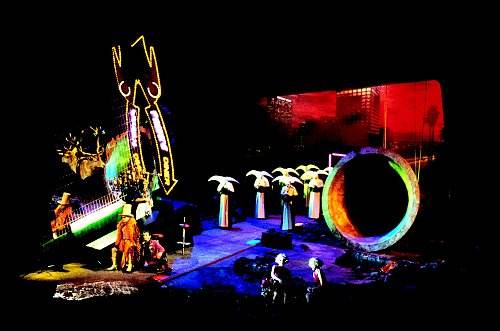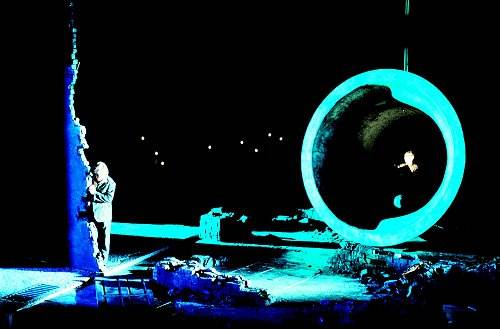
Beginning this year the Théàtre du Châtelet in Paris presents the first mini-festival in its new series "Festival des regions." With the intention of bringing to Paris the best product from regional opera houses (we no longer use the word "provincial" as it has fallen out of fashion), it is the turn of the Opera National du Rhin in Strasbourg to have its place in the spotlight.
Their first offering is the monumental product of the 23-year-old Erich Korngold, his opera, Die tote Stadt, after a book by Georges Rodenbach, Bruges-la-morte. This Opera in Three Acts received considerable critical attention at its dual premieres in December, 1920, conducted by Klemperer in Hamburg and Cologne.
This production, said to be the first in France, is closely following a major revival of this work at the Metropolitan Opera in New York, and is an indication of the increased attention Korngold, who remained in Hollywood after the Nazi occupation of Austria and became a successful composer for films, and this opera are receiving..
It made for an impressive, even stirring, night at the theater, except that the production was, as is so often the case, distracting. In order to show that other towns in France can have director-driven, daffy productions just like at the Opéra Bastille, stage director Inga Levant moved the setting to the composer's adopted city, Hollywood. Loaded with camp and theatrical excess, it featured the already very hot soprano, Angela Denoke as a provocative temptress trained in the Benny Hill school of social interaction. The second act is located in a "diner" which featured men at a bar drinking (one an aging Elton John impersonator), and suggests that Ms Levant has actually never been to America. With the bizarre clothes and a corps of nuns in bloomers, etc., it was more like San Francisco's Castro Street on Holloween night. The action described in the printed synopsis sounds like effective drama and this "reinterpretation" saps interest in the story.
The tenor, Torsten Kerl, sang with force and feeling in a major role demanding a powerful voice. He began cautiously in the First Act and the large scale, late-Romantic orchestration sometimes covered his voice. He seemed to come alive during the Second Act, with its highly charged sexual overtones and shone brilliantly in the Third, with its extended solo finale. His is not the biggest tenor voice but he made up for it with on-target, involved singing. Angela Denoke, in the role created by the great Maria Jeritza, was as attractive a seductress as you can find on stage today. Some high notes were tentatively attacked but her vocal gifts and theatricality proved her to be among the best in this type of repertory.
It is a brilliant opera loaded with fine musical moments. It should be noted that Ben Heppner sings the final aria from this opera, like a signature piece, in recitals. My new edition of the Kobbe Opera Book says it has not yet apparently been staged in the U. K. It seems like somebody at the Royal Opera should ask Mr Heppner nicely.
Frank Cadenhead

 Return to:
Return to: